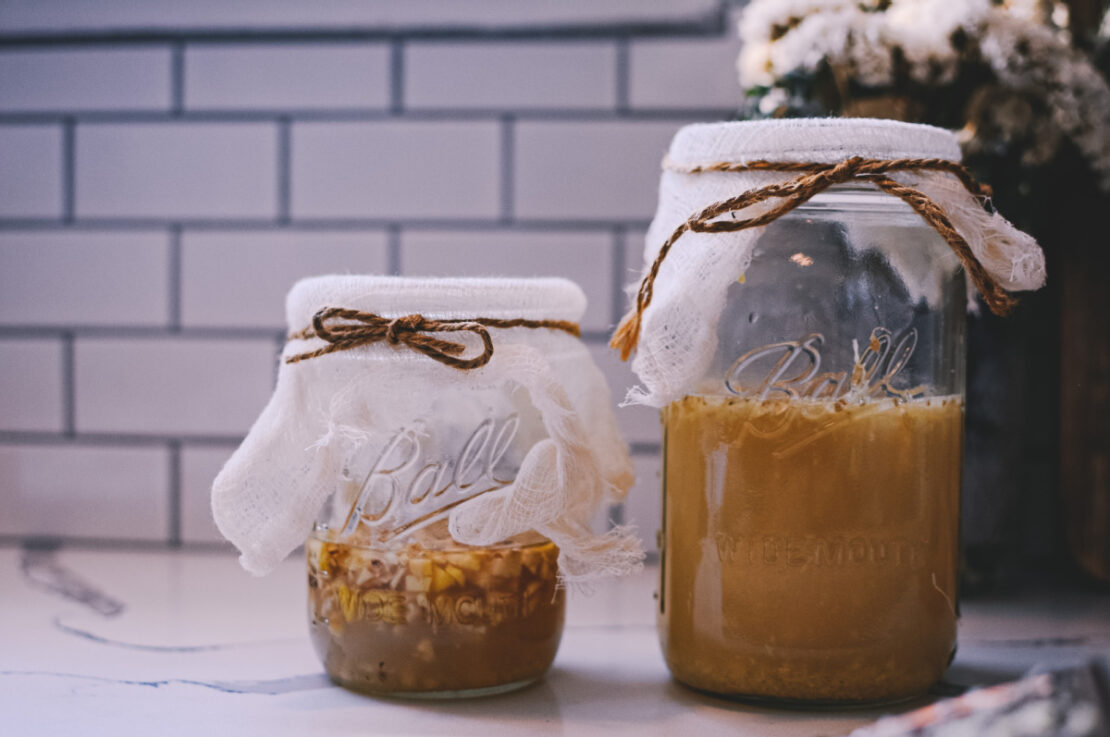
Nettle Infused Ice Cubes + How to Make a Super Soda
The familiar sound when you crack open a soda, the release of those tiny little bubbles that pop and dance on the can’s lid. It is such a nostalgic memory. Can’t you just hear it now if you close your eyes? What if I told you there was a way to enjoy that same feeling, but instead of a store-bought soda, you could make your very own super soda!
Over the years I have become increasingly aware of the not-so-great side of soda. It’s been a long time since I’ve actually had one. However, I still crave the fizz and bubbles. I have found a unique and easy way to make soda at home! Just a couple of ingredients is all you need to enjoy a refreshing drink without the unwanted additives. Plus, this is no ordinary soda or bubble water. This recipe is full of probiotics, nutrients, and a wonderful drink for gut and overall health—it’s super!
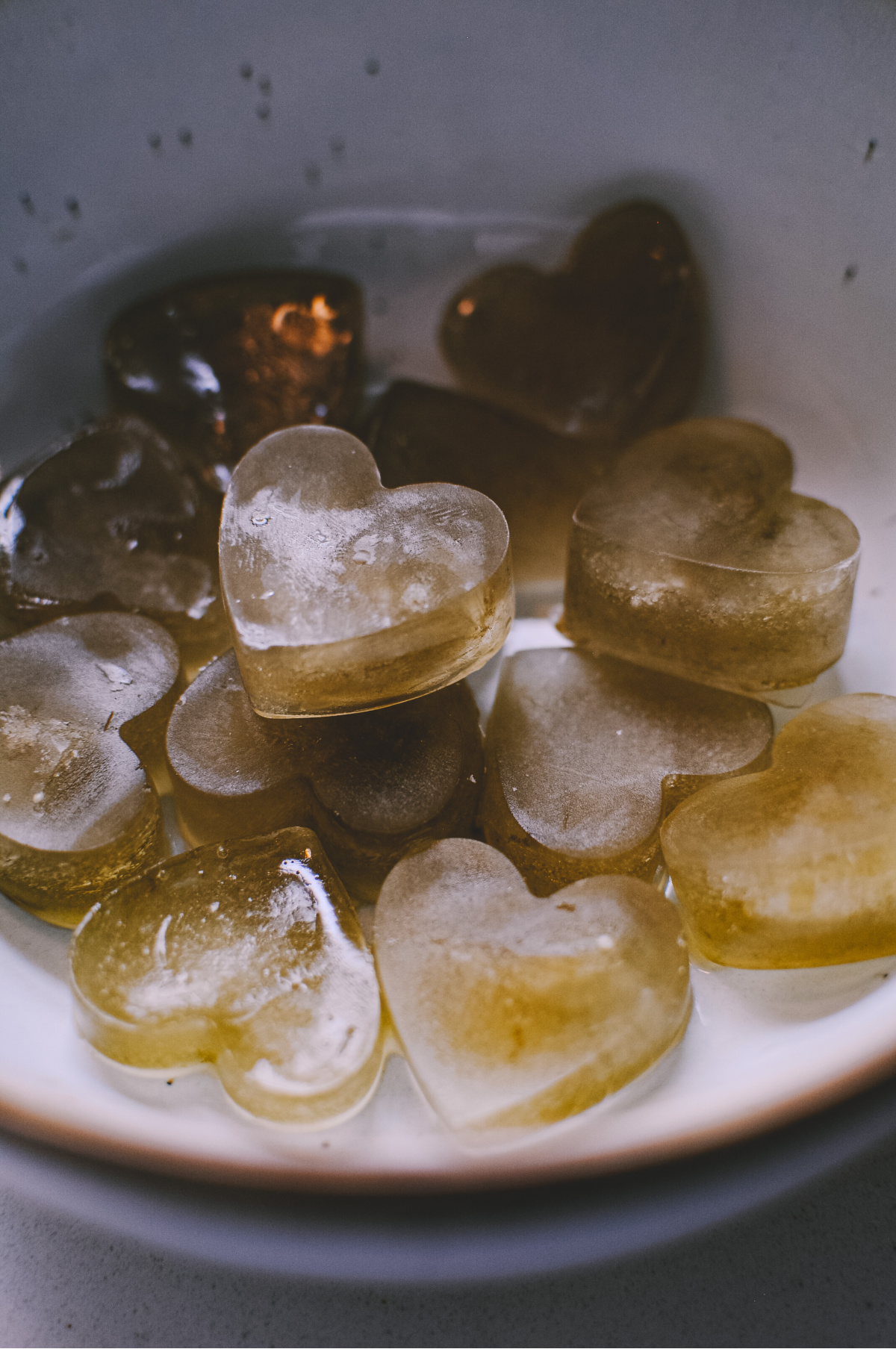
Nettle Infused Ice Cubes
Nettle (Urtica dioica)
The dark green leaves of this plant are full of nourishing benefits. Rich in iron, calcium, magnesium, and protein, nettle helps to keep our bones, joints, and even our blood healthy (Easley & Horne, 2016). Making a strong herbal infusion with nettle is a perfect way to extract this plant’s constituents. Taking it one step further, creating herbal ice cubes from the nettle infusion preserves the strong tea for days to come.
This is one of my favorite ways to create an herbal refreshment. Make a strong batch of nettle tea, allowing it to sit and soak in the fridge overnight. From there, pour the nettle tea into an ice cube tray or silicon molds. It will freeze and solidify, preserving your herbal liquid. Throughout the day or the next few days thereafter, simply pop a couple out and place them into either sparkling water, or in this case, into a cup of your very own super soda. The result is a delicious combo bubbling with benefits.
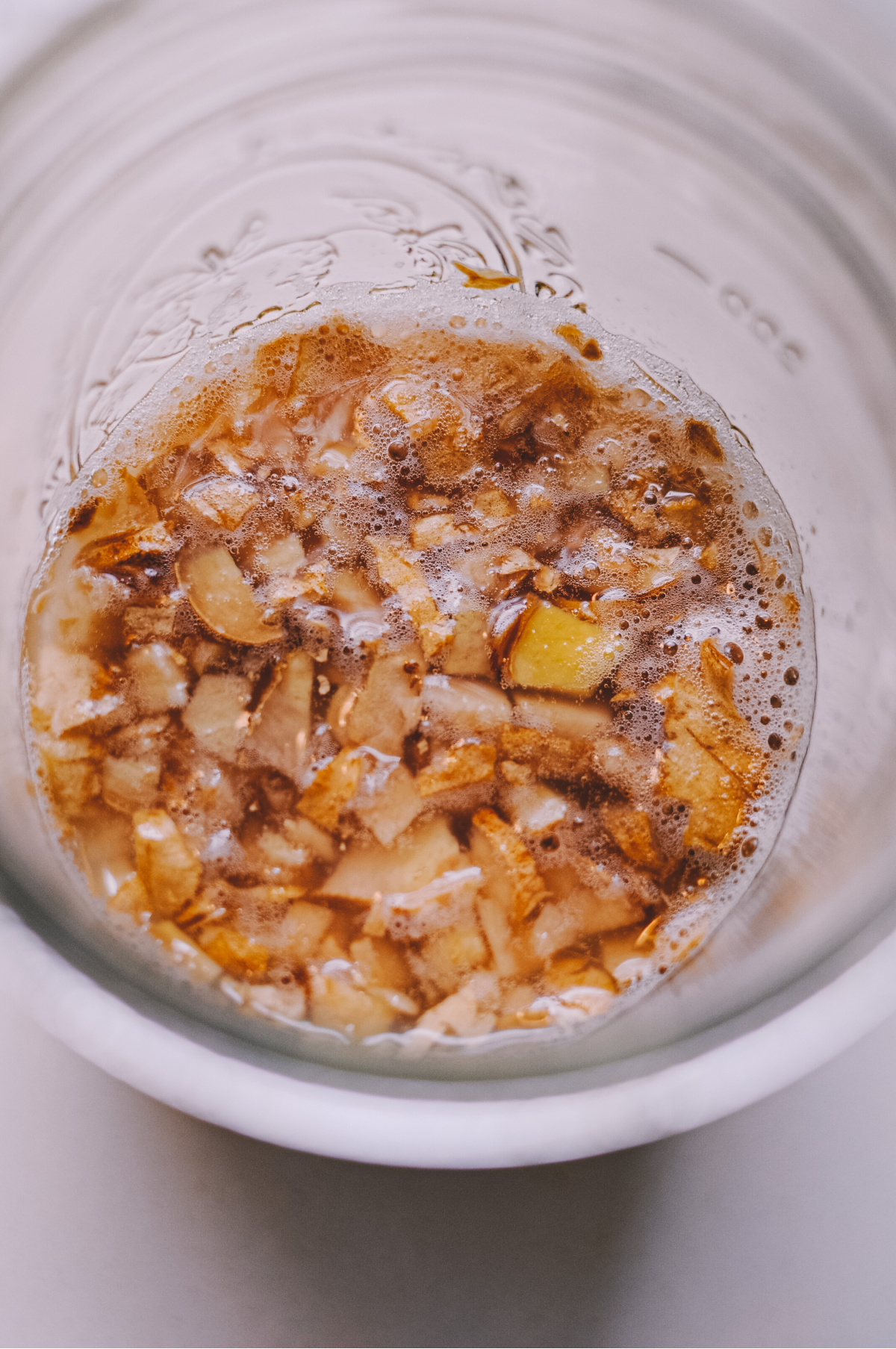
Ginger Bug
Through my studies, I came across a few articles with a funny headline—ginger bug. The articles were a fascinating discovery. Simply using fresh organic ginger and sugar, you can ferment this into a fizzy soda starter! I had to try it myself. I’m sharing my experience making this and a beautiful super soda recipe for you to enjoy.
Why Ginger?
This aromatic spice has a long culinary history, however, the added health benefits are just as revered. Best known for its ability to reduce nausea and calm an upset stomach, ginger (Zingiber officinale) is also antioxidant, anti-inflammatory, and good tasting (Herbal Academy, n.d.). There are several other ways to create a fermented soda, but if you’re a beginner like me, this is a great place to start.
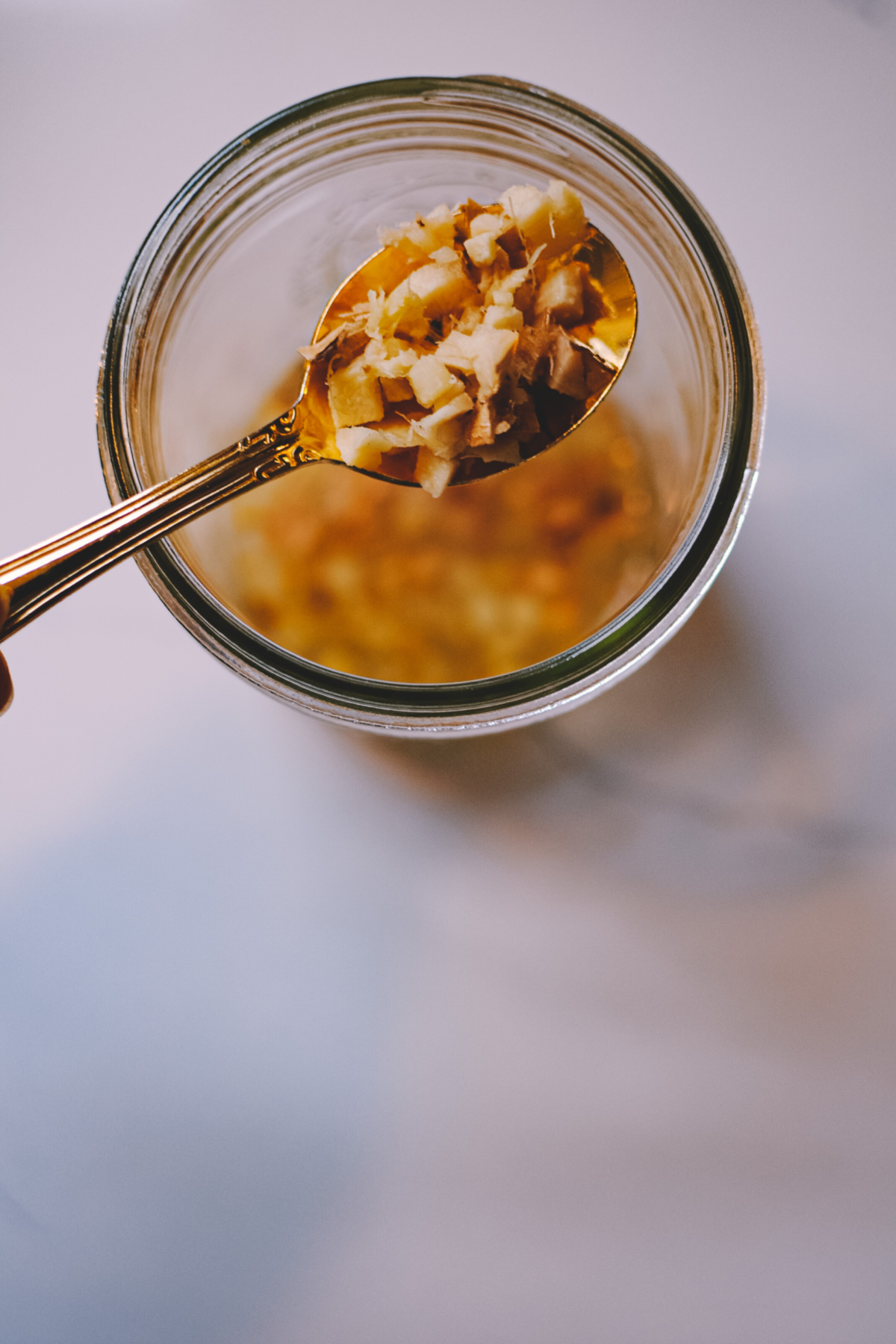
The Ginger Bug Process
Getting started, you must know that it takes a little commitment. For the next five days you will be “feeding” your ginger bug to encourage the fermentation process. The steps are easy, but a very valuable lesson that I learned the hard way is, if not done in the correct way, it can go wrong. The goal is to have your ginger bug start to bubble by the fifth day. The bubbles mean it’s working. The sugar is our fermenter catalyst and with this, we are creating all of the good bacteria that our gut needs.
Directions to Create a Ginger Bug
Using a quart jar, grate or chop, fresh organic ginger—skin on! That is where all the wonderful good bacteria are found (Naqvi et al., 2020). You will need to grate or chop 2 tablespoons of ginger, then place it into the jar.
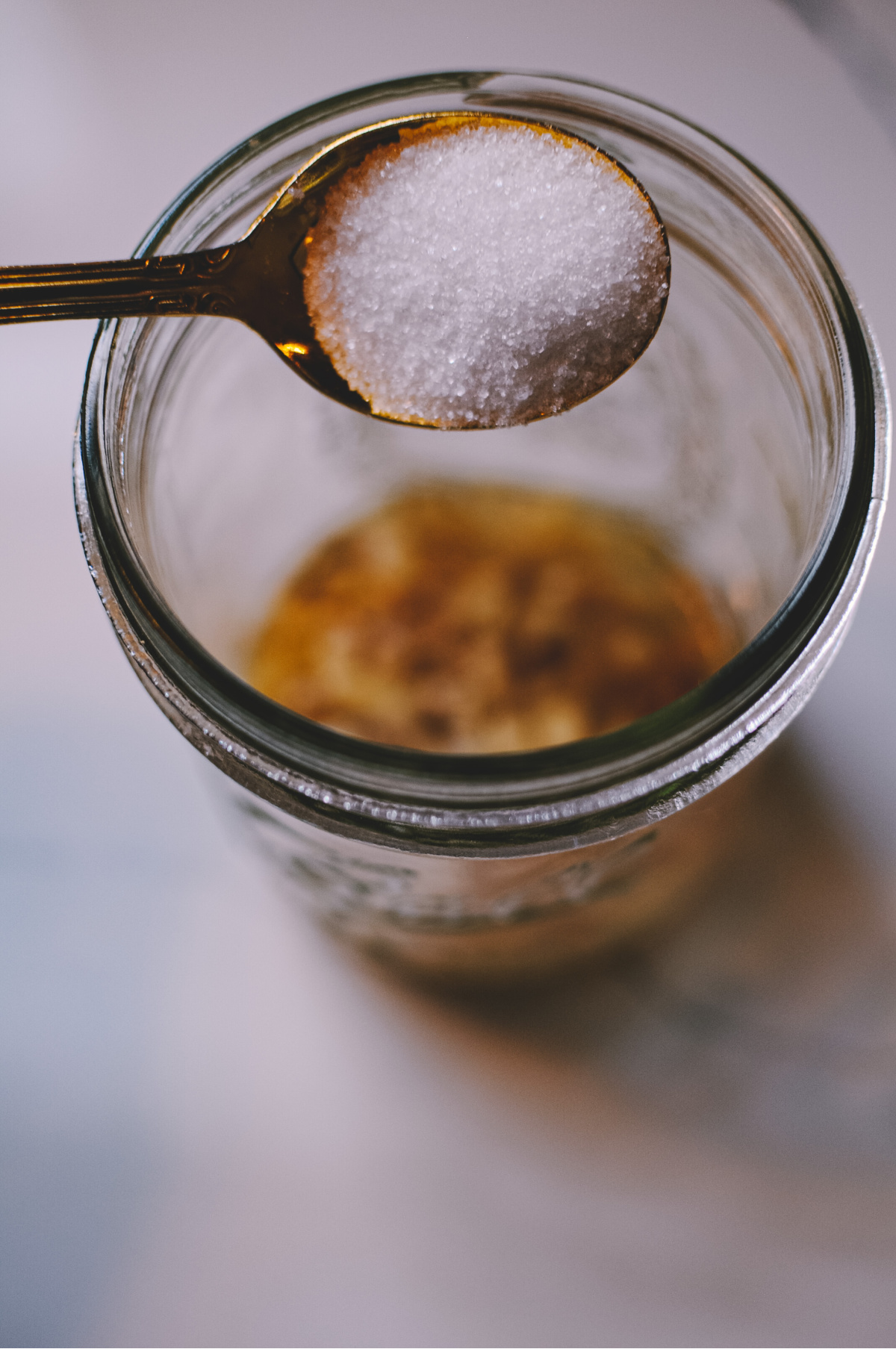
Next, sprinkle in 2 tablespoons of white sugar.
Cover the two ingredients with just enough water by an inch. To help me with getting this right, I found that using a shot glass and filling it halfway, worked well. I also used spring water for this recipe to get the most beneficial nutrients. It is important to not use tap water that contains chlorine.
Cover your jar with cheesecloth and a band and place it on your counter, but away from sunlight. I can’t stress this one enough. With my first batch, on the 4th day, I noticed the bubbles were gone from my ginger bug. After days of feeding, it became sterilized when I left the blinds open and the direct sunlight was hitting my jar for far too long. I had to start over! However, with this lesson learned and my opportunity to try again, I made two batches. One grated with the water added from the start. The other chopped ginger with water added each time. Both worked beautifully. If I were to suggest a method, chopping is the way to go! The chopping method is less time-consuming and yields the same results.
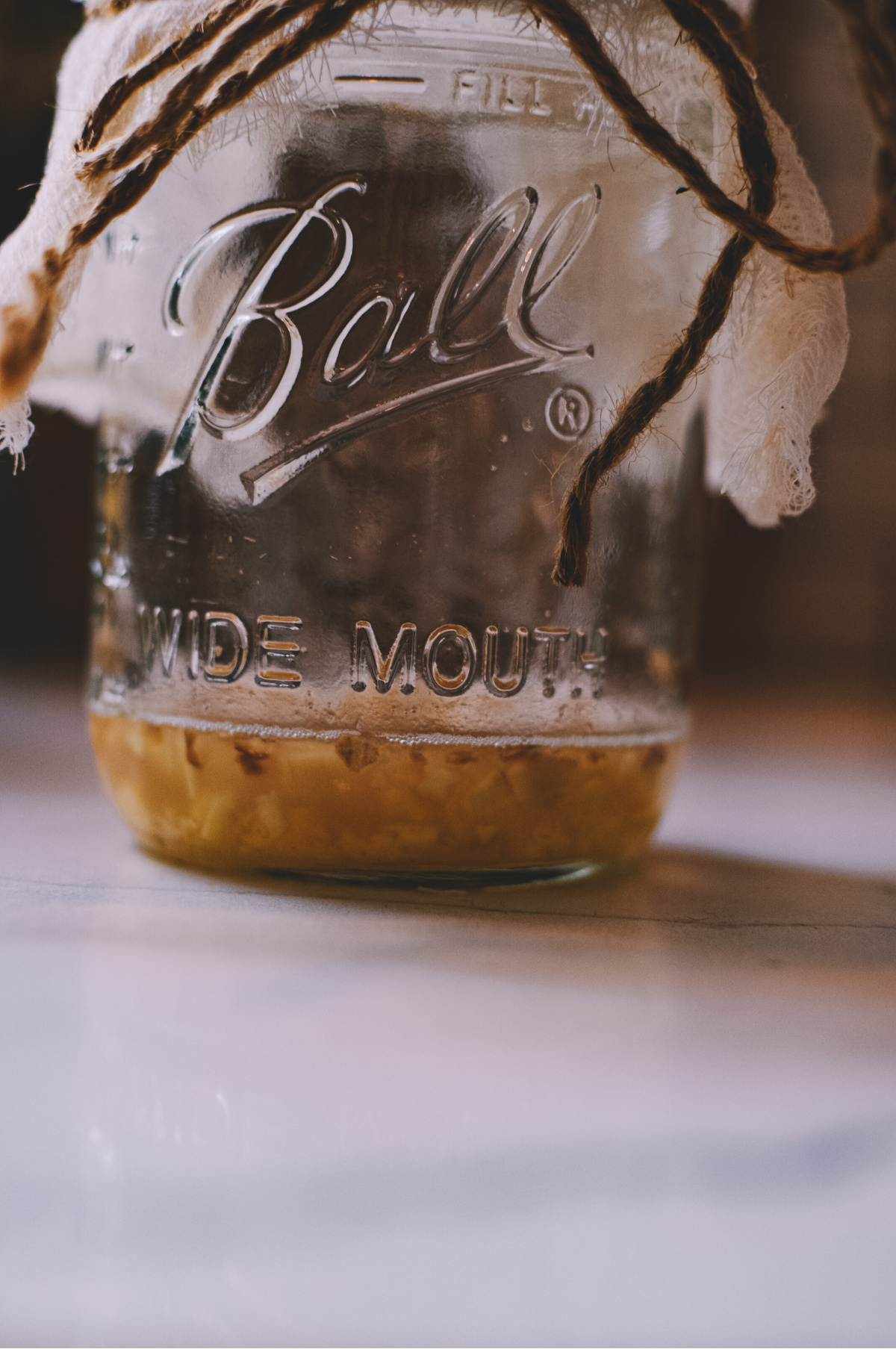
The next day, repeat the above steps. Do the same thing every single day for about five days.
By the fifth day, you should notice lots and lots of bubbles. You have now officially fermented your first starter soda! The ginger bug will smell almost like beer. The color should be light but not cloudy, and of course, check for any mold.
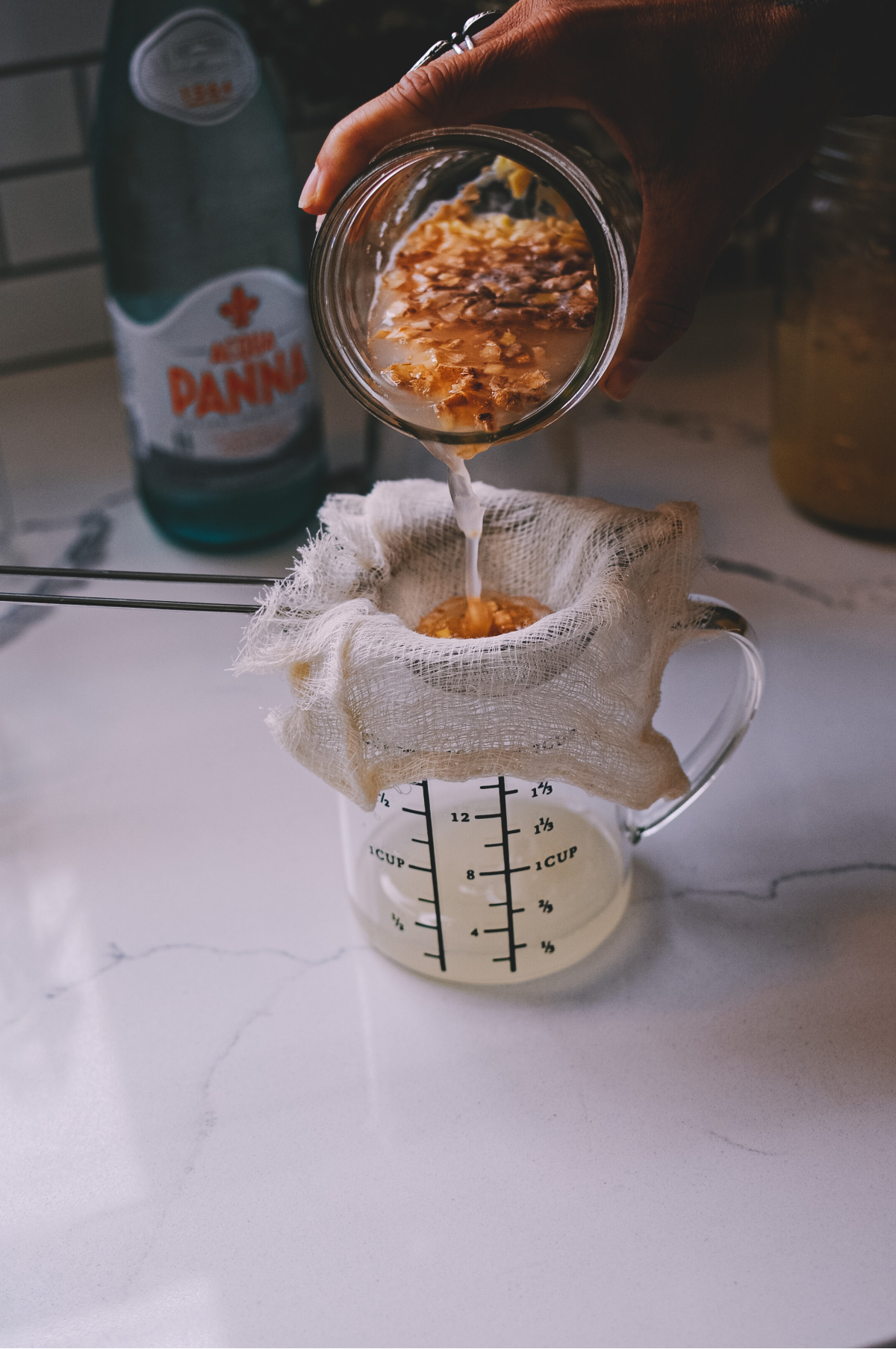
One of the easiest ways to enjoy this fermented goodness is to strain some of your ginger bug juice off. Using a fine-mesh strainer and cheesecloth, strain out about ½ a cup. This sweet and spicy soda base can be used to customize your own recipes. Or, use for a second fermentation to create a true soda. For this, we will be using the ginger bug juice as an additive, to boost and sup up mineral water.
Once you strain off the desired amount of ginger bug juice, place a lid on your jar and store the ginger bug in the fridge. The fermentation will rest and be preserved for years to come. Fascinating, like I said, right? After each use, simply feed it again and store it in the fridge when you are taking a break.
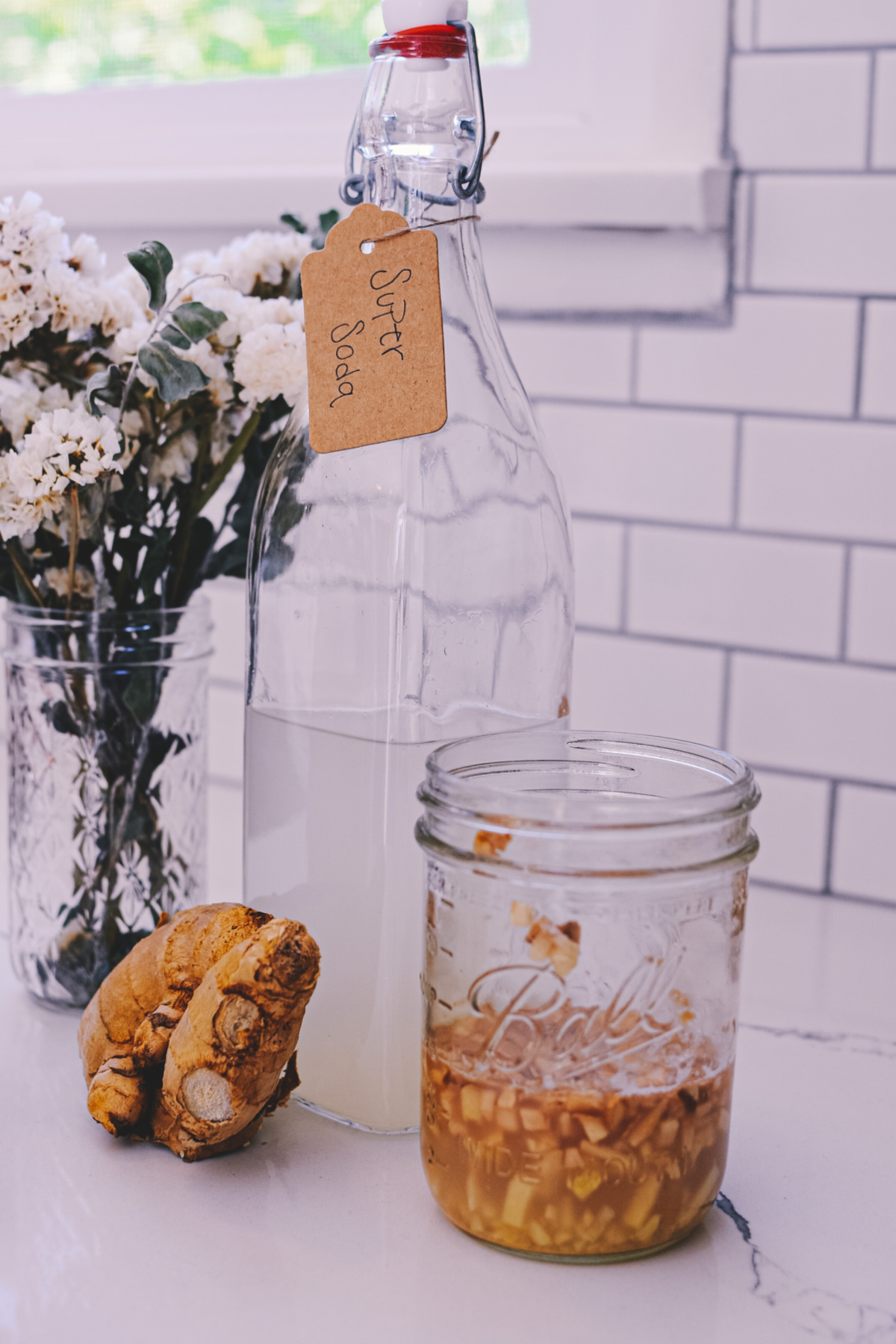
Tie This Altogether—Super Soda!
To tie this all together, below is the recipe for a super soda. The sweet and spicy ginger bug juice mixes beautifully into the sparkling mineral water. The nettle-infused ice cubes bounce and float to the top, slowly melting and releasing an emerald green hue into your cup. The flavors merge and you get to sip a balanced, herby, spicy, nutrient-rich super soda.
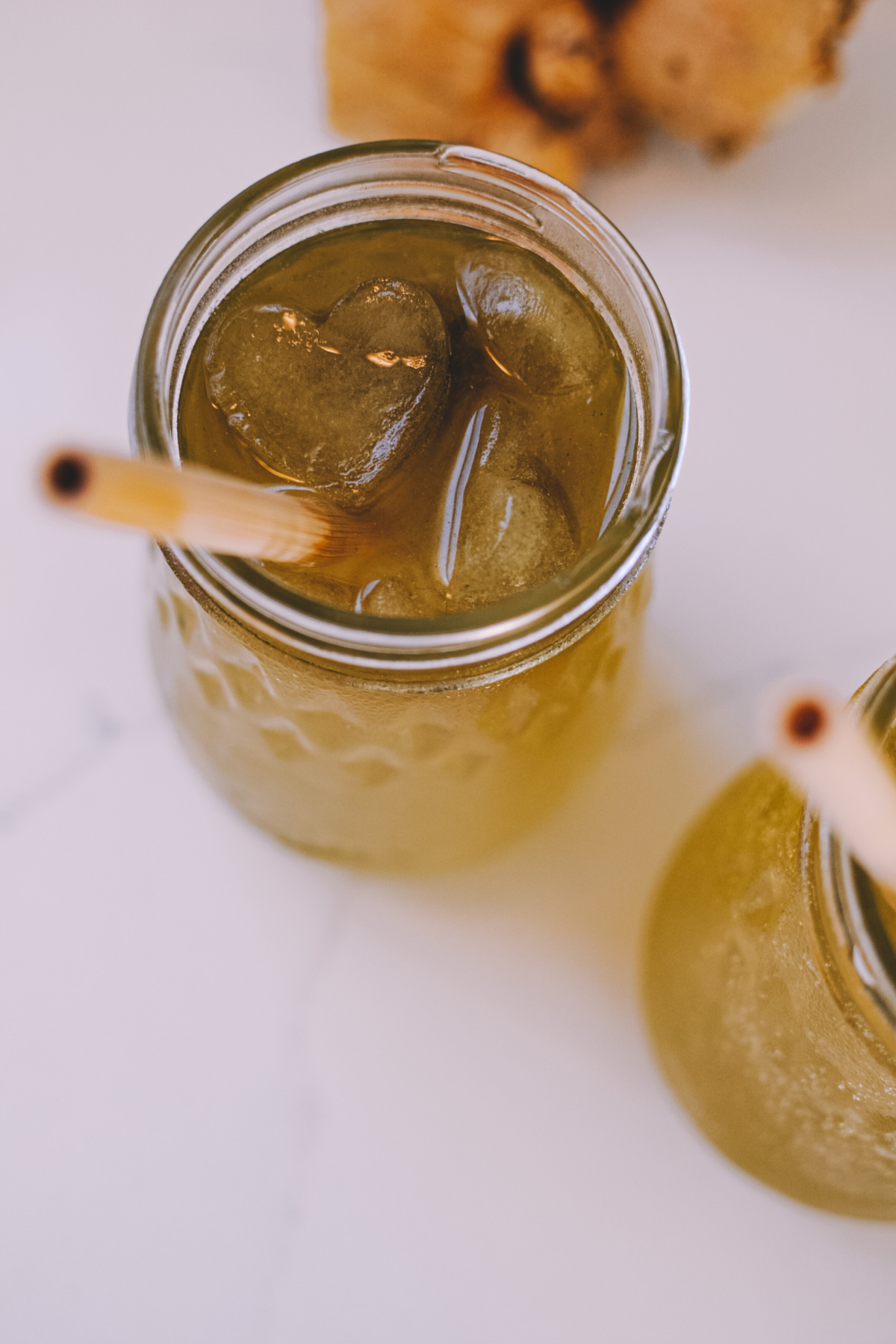
Super Soda Recipe
This is no ordinary soda or bubble water. This recipe is full of probiotics, nutrients, and a wonderful drink for gut and overall health—it’s super!
½ cup ginger bug juice
2 cups sparkling mineral water
Nettle (Urtica dioica) infused ice cubes
- Prepare a ginger bug
- Once your ginger bug is ready to use, strain off ½ cup of the ginger bug juice.
- Put the remaining ginger bug in the fridge to use for other fermented recipes.
- Prepare a strong nettle infusion
-
- Add ⅓ cup of dried nettle to a quart jar, pour hot water over the nettle, filling the rest of the jar with water. Place it in the fridge overnight. Strain the nettle with a cheesecloth, reserve the nettle infusion for ice cubes.
-
- Create nettle-infused ice cubes with your nettle infusion by filling an ice tray and allowing it to freeze.
- In a swing bottle place the ginger bug juice and 2 cups of sparkling mineral water.
- Pour the combo into cups and add in a few nettle ice cubes.
In Closing,
This was an exciting recipe to try. It had many wonderful herbal lessons and methods. I deeply enjoyed watching my ginger bug bubble and fizz each day. Plus knowing how good this is for our gut health, this will be something that I will do for years to come. Next up, learning more about fermentation. The best part about being a student with Herbal Academy, there’s always a class for what I’m curious to learn next!
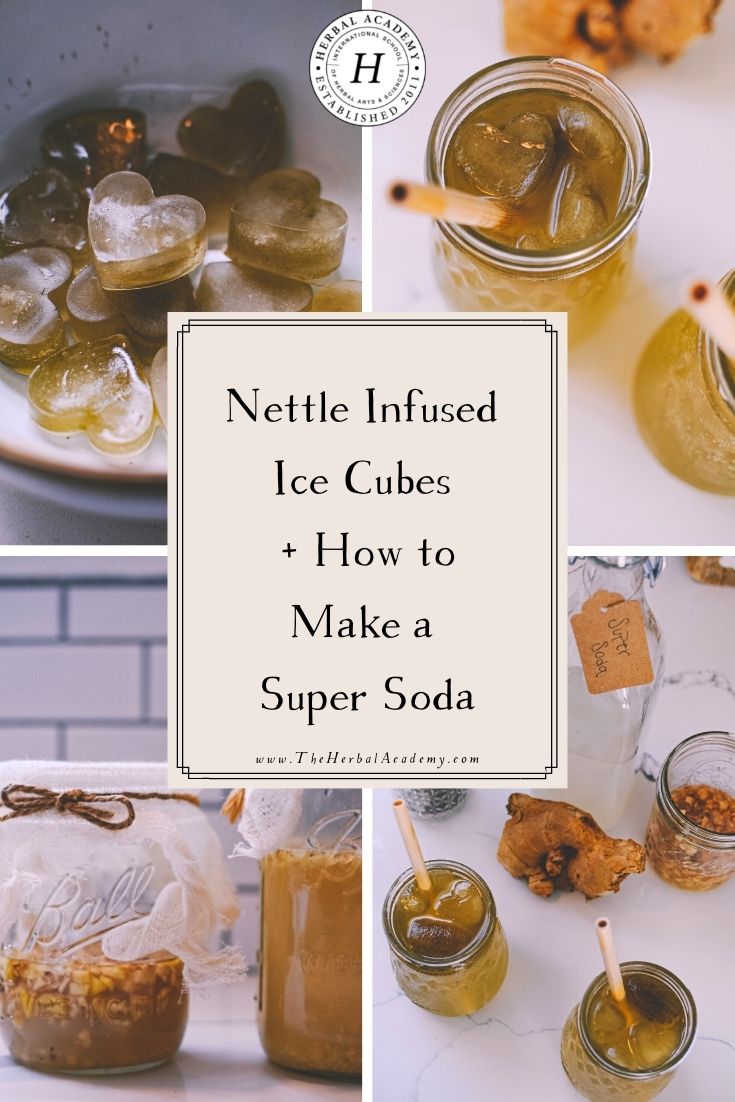
REFERENCES
Easley, T. & Horne, S. (2016). The Modern Herbal Dispensatory: a medicine making guide. Berkley, California: North Atlantic Books.
Herbal Academy. (n.d.). Mastering Herbal Formulation [Online Educational Program]. Retrieved from https://theherbalacademy.com/product/mastering-herbal-formulation-course-how-to-combine-herbs/
Naqvi, S. A. Z., Irfan, A., Zahoor, A. F., Zafar, M., Maria, A., Chand, A. J., & Ashfaq, S. (2020). Determination of antimicrobial and antioxidant potential of agro-waste peels. Anais Da Academia Brasileira de Ciencias, 92(2), e20181103. https://doi.org/10.1590/0001-3765202020181103








